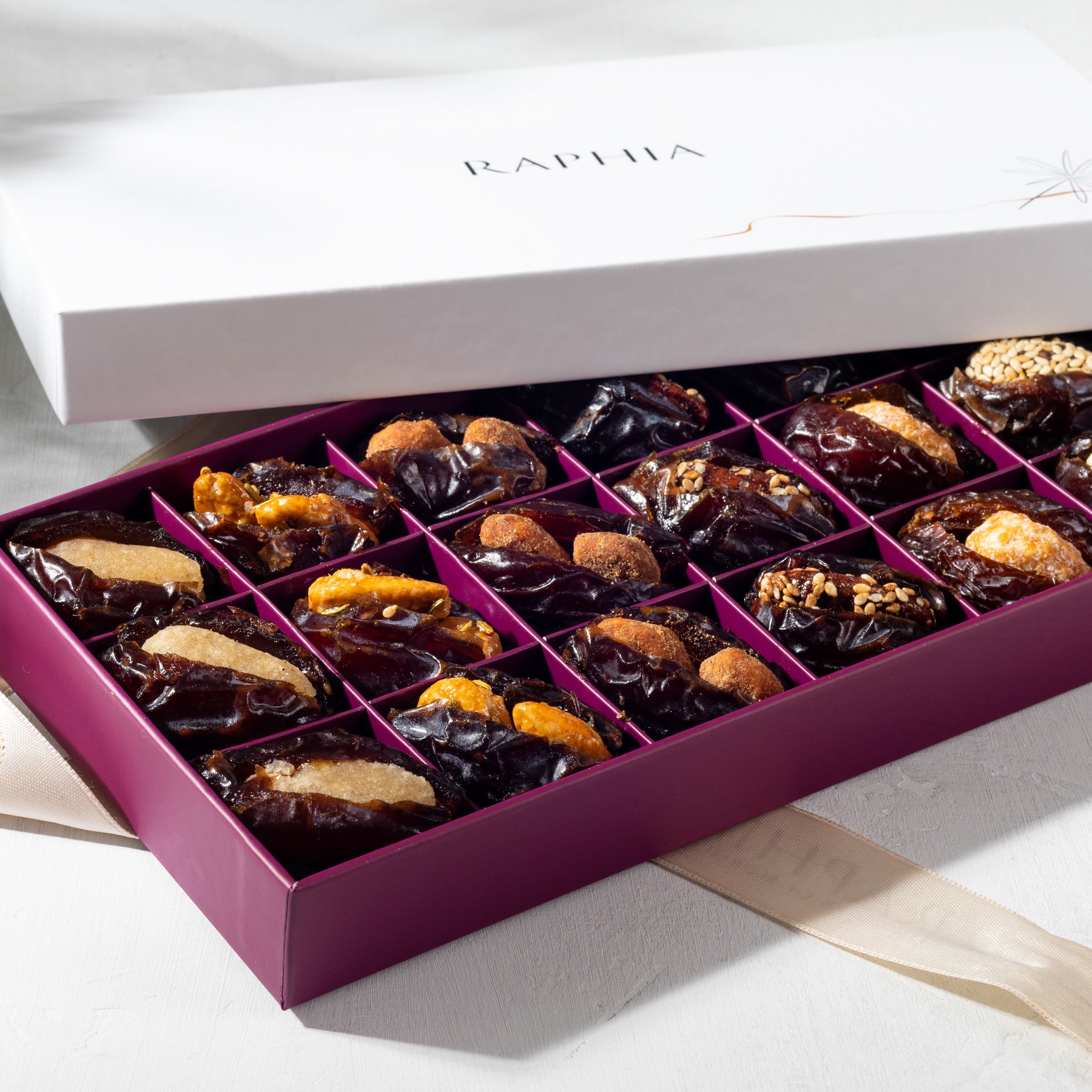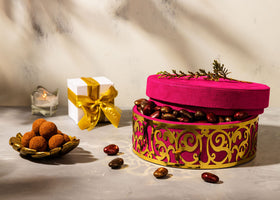
Raphia’s guide to dates at Ramadan
Dates – the fruit of the date palm tree – are a staple part of Ramadan, the month of fasting which this year started on 13 April. Muslims will regularly break their daily fast with this delicious, nutritionally-packed food.
Offering an artisan experience of dates is luxury confectioner Raphia – Flavours of Morocco. Its Ramadan and Eid 2021 Collection comprises an exquisite assortment of date fillings with contrasting and complementary flavours and textures, including fennel caramelised almonds, orange blossom, and cinnamon spices.
Raphia founder Zineb Faress said: “Stuffed dates feature prominently in our new Ramadan and Eid collection. These divine sweet treats are a modern twist on a traditional, popular fruit that is consumed across North Africa and the Middle East all year-round.”
“At Ramadan, of course, dates take on greater significance for religious and nutritional reasons, which prompted us to pen this quick guide on why they are so important at this time of year,” Ms Faress added.
Health and Nutrition
Dates possess countless health benefits. The fruit is high in fibre and antioxidants, which help prevent constipation and fight disease. Dates are also rich in nutrients such as potassium, magnesium, copper, manganese, iron, and vitamin B6, which are good for the body and brain cells.
Dates are easy to digest and gentle on the stomach of a fasting person. They are a good supply of sugar and energy to the body, and with a low glycaemic index, dates won’t generate a spike in blood sugar levels, making them a safe choice of sweet even for people with diabetes. The alkaline salts in dates can also help stabilise blood acidity, which occurs when consuming meat and other carbohydrates.
The Prophet Muhammad, dates and Islam
The date is a sacred fruit symbolising health and abundance in Islamic history and culture.
The date palm is mentioned 23 times in the Quran (the holy book of Islam) – more than any other fruit. References can be found in chapters such as the Qaf, Al-Shuara and Al-Nahl, where the date is described as a ‘blessing’.
The Hadith, which recorded the words and deeds of the Prophet Muhammad, and is second in authority only to the Quran, also contains numerous references to dates. In one Hadith, the Prophet is described as saying, “Break your fast by eating dates as it is purifying,” (Ahmad).
The Prophet Muhammad's humble iftar table always had dates. He would break his daily fast with either a few fresh or dried dates and a sip of water, a practice followed by Muslims worldwide each Ramadan.
Dates hold religious significance outside of Ramadan too. The most precious gifts brought home by pilgrims visiting the holy site of Mecca are "zam-zam" [blessed] water and dates. The fruit was traditionally favoured at Mevlid (prayer) recitations, although today other types of confectionary are also distributed.
Food Culture
Dates are popular plain, and can be eaten either fresh or dried. However, they also feature in dozens of sweet and savoury recipes. A healthy substitute for white sugar, dates are often added as natural sweetners to salads, smoothies, juices, cakes, confectionary, and granolas, as well as rice, curries, and stews.
Muslim households maintain the traditional spirit of sharing by offering dates around the table, and by giving fancy dates as gifts during Ramadan and in the Eid celebrations that follow the month of fasting.
Also Read - The virtual art of sharing dates and sweet treats for Ramadan and Eid



Leave a comment